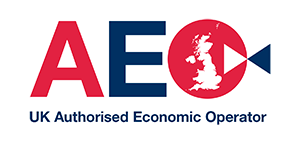
There will be multiple changes to sanitary and phytosanitary rules from January 2024.
From January 31, 2024, to import live animals or animal products from the EU and EFTA states into Great Britain you will need to determine the Target Operating Model (TOM) risk category for your commodity and follow the sanitary and phytosanitary (SPS) rules for that category.
What is the Target Operating Model (TOM)?
The TOM classifies live animals, germinal products, products of animal origin (POAO), and animal by-products (ABPs) as high risk, medium risk, or low risk, each with different requirements.
Depending on the risk category of your consignment, different rules apply.
You can find the TOM risk category using two documents: TOM risk categories: summary tables and TOM risk categories: searchable list with commodity codes.
Low, medium and high risk goods
Composite products from the EU and EFTA states will either be in the low TOM risk category or exempt from import controls.
If your consignment is in the low TOM risk category, use the import of products, animals, food and feed system (IPAFFS) to notify authorities. No export health certificate is required.
For medium and high TOM risk categories, an export health certificate should be issued by the competent authority in the country of origin if necessary.
Consigned goods in the high TOM risk category are already subject to physical import checks, which will continue. This will apply to the TOM Medium Risk group from 31 January 2024.
If there is no Export Health Certificate issued by the exporting company for your goods, you may need an import licence or authorisation. Contact the Animal and Plant Health Agency (APHA) Animal Imports team for assistance.
Please note - TOM risk categories are subject to regular review.
TOM risk categories for products from non-EU countries will be published in summer 2023.
For TOM risk categories related to plants and plant products, will be available though the UK Plant Health Information Portal.
It is always worth checking if your products need IPAFFS as there are obscure commodities such as used tractors and forestry equipment which you wouldn’t ordinarily think would fall under the import of products, animals, food and feed system.
CustomsLink can help
These checks mean that more paperwork is required from businesses, and more physical checks will be carried out. Should shipments get held up at inspection, CustomsLink will liaise with port health authorities on behalf of our customers to help speed the process along.
We regularly help customers import and export foodstuffs across the UK and EU and will continue to help streamline customs processes for our customers with our pre-notification IPAFFS services.
CustomsLink has also been part of the official TOM Design Advisory Group with DEFRA.
What impact will these controls have on my business?
Transporting goods through the ports may take longer as more shipments of foodstuffs and other goods will be subject to physical checks.
As always, our dedicated team at CustomsLink will be supporting our clients 7 days a week.








